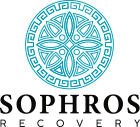Dual diagnosis occurs when a person has a substance use disorder and mental health issues. This can create unique challenges in recovery, so seeking treatment for both issues is crucial for achieving long-term wellness.
Sophros Recovery provides specialized outpatient addiction treatment and therapy. We understand how difficult it can be to reach out for help when facing a dual diagnosis. Therefore, we seek to provide compassionate care that helps each person work towards their goals of sustained recovery. Our experienced staff knows the complexities of simultaneously treating individuals who struggle with addiction and other mental health conditions. Contact us today at 866.374.0541 to take the first step toward a healthier and more fulfilling life.
Dual Diagnosis Meaning
If you or someone you love is struggling with a substance use disorder, it’s essential to understand the complexities of dual diagnosis. Learning more about the meanings and implications of a dual diagnosis can prompt individuals to seek outpatient addiction treatment and recover.
What Is Dual Diagnosis?
Dual diagnosis, also known as co-occurring disorders, is a term used when substance use disorders occur in tandem with mental health issues. Approximately one-third of individuals with mental health conditions also have a substance use disorder and vice versa. Common co-occurring mental health issues include:
- Depression
- Anxiety
- Bipolar disorder
- Schizophrenia
Dual diagnosis can be challenging because the symptoms of addiction and mental health disorders often overlap. Symptoms may include:
- Changes in behavior or mood
- Social withdrawal
- Changes in sleeping or eating habits
- Difficulty maintaining employment or relationships
By recognizing the signs of co-occurring disorders, individuals can get the care they need to achieve and sustain recovery. If you or a loved one experiences these symptoms, it’s essential to seek a professional evaluation from a licensed addiction specialist or mental health professional.
Treating Dual Diagnosis
Treating dual diagnosis involves addressing addiction and mental health conditions comprehensively and integratively. This may involve a combination of medication management, behavioral therapies, and support groups. Treatment should be tailored to the individual’s needs and may involve ongoing care to support long-term recovery.
Outpatient addiction treatment can be an effective option for individuals seeking recovery while maintaining their work or family obligations. It may include:
- Individual and group therapy
- Medication management
- Peer support
Outpatient treatment programs also use evidence-based approaches such as cognitive-behavioral therapy (CBT) and motivational interviewing (MI), which have proven effective in treating addiction and mental health conditions. Jacksonville is home to a range of high-quality outpatient treatment options that can provide the support and care needed for individuals with dual diagnoses.
Treatment for co-occurring disorders is crucial because mental health issues and addiction are intertwined and can worsen over time. By addressing both issues simultaneously, individuals can significantly improve their chances of achieving and sustaining long-term recovery. Seeking treatment can also help individuals improve their overall quality of life and relationships.
Dual diagnosis can be challenging, but seeking addiction treatment can significantly impact individuals’ lives. If you or someone you love is struggling with addiction and mental health disorders, don’t hesitate to ask for professional assistance.
Find Dual Diagnosis Treatment at Sophros Recovery
At Sophros Recovery, we understand the challenges of dual diagnosis and provide comprehensive outpatient addiction treatment and therapy services for individuals in Jacksonville. We believe everyone deserves access to quality care, and our team of experienced professionals is dedicated to providing personalized treatment plans that meet each client’s unique needs.
If you or someone you love is struggling with addiction and mental illness, call 866.374.0541 or fill out our contact form. We are here to help you take control of your life by providing compassionate care in an encouraging environment where recovery is possible.







